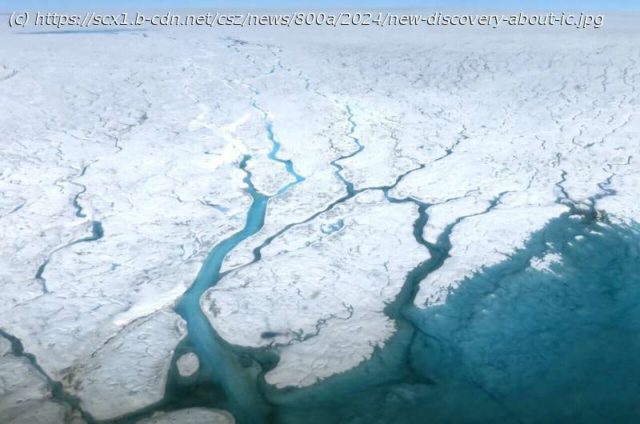A newly discovered mechanism for the flow and freezing of ice sheet meltwater could improve estimates of sea level rise around the globe.
A newly discovered mechanism for the flow and freezing of ice sheet meltwater could improve estimates of sea level rise around the globe.
Researchers from The University of Texas at Austin, in collaboration with NASA’s Jet Propulsion Laboratory (JPL) and the Geological Survey of Denmark and Greenland (GEUS), have found a new mechanism that explains the process of how impermeable horizontal ice layers are formed below the surface, a process critical for determining the contribution of ice sheet meltwater to sea level rise.
The work by Mohammad Afzal Shadab, a graduate student at UT’s Oden Institute for Computational Engineering and Sciences, was published in Geophysical Research Letters. Shadab was supervised by study co-authors Marc Hesse and Cyril Grima at UT’s Jackson School of Geosciences.
The world’s two largest freshwater reservoirs, the Greenland and Antarctica ice sheets, are covered in old snow, known as firn, that’s not yet compacted into solid ice. Because the firn is porous, melted snow can drain down into the firn and freeze again rather than running into the sea. This process is thought to decrease meltwater runoff by about half.
However, it’s also possible to form impermeable ice layers that can serve as barriers for meltwater—and divert meltwater to the sea, said Shadab.
„So, there are cases where these ice layers in firn accelerate the rate of meltwater running into the oceans“, he said.
Start
United States
USA — IT Discovery about ice layer formation in ice sheets can improve sea level...






